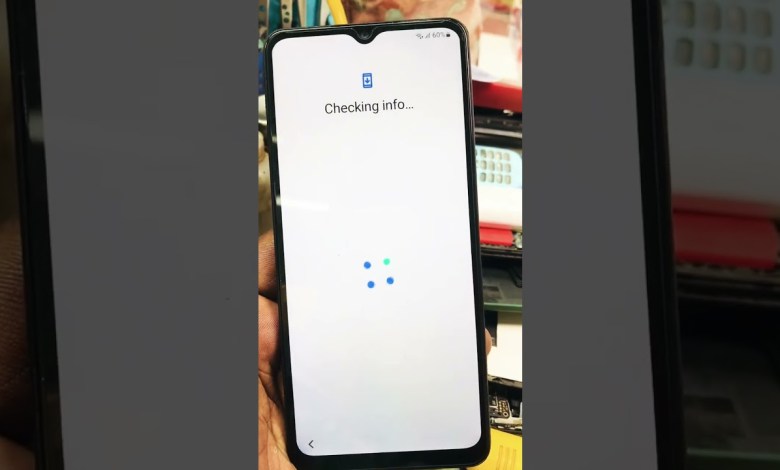Unlocking Secrets: Samsung A12 SM-A125 FRP Bypass Method for Android 12 & 13!

Samsung A12 SM-A125 Frp bypass Android 12,13 method with unlocktool.
The Significance of Dhikr in Islamic Culture
Introduction
In the fast-paced world we live in today, many individuals seek solace and peace through spiritual practices. One such practice in Islamic culture is dhikr, which refers to the remembrance of Allah. This article explores the significance of dhikr, its various forms, and its role in fostering a sense of peace and spirituality in the lives of Muslims.
What is Dhikr?
Dhikr (ذِكْر) literally translates to "remembrance." In the context of Islam, it involves the repetitive chanting or recitation of phrases that glorify Allah. These phrases include expressions of praise and devotion such as "Subhanallah" (سبحان الله), meaning "Glory be to Allah," "Alhamdulillah" (الحمد لله), meaning "All praise is due to Allah," "La ilaha illallah" (لا إله إلا الله), meaning "There is no god but Allah," and "Allahu Akbar" (الله أكبر), meaning "Allah is the Greatest."
The Importance of Dhikr
The importance of dhikr is highlighted in various Islamic texts. It serves as a means for Muslims to draw closer to their Creator, find inner peace, and attain spiritual awareness. The Quran emphasizes the value of remembering Allah, stating:
"Indeed, in the remembrance of Allah do hearts find rest." (Quran 13:28)
This illustrates that dhikr aids in calming the mind and soul, providing solace amid life’s challenges.
Forms of Dhikr
Dhikr can be performed in several ways, each holding its significance. Here are a few prominent forms:
1. Oral Recitation
The most common form of dhikr involves verbally reciting sacred phrases. Many Muslims engage in this as part of their daily routine, often after the five daily prayers.
2. Silent Reflection
In addition to oral recitation, dhikr can also be performed silently. This allows individuals to ponder deeply over the meanings of the phrases and their implications in their lives.
3. Gatherings for Dhikr
Many Muslims participate in group gatherings focused on dhikr. These communal practices not only enhance the individual experience but also foster a sense of community and unity among participants.
4. Integration into Daily Life
Many Muslims integrate dhikr into their daily lives, uttering phrases while engaging in their daily activities. This can serve as a constant reminder of Allah’s presence, encouraging mindfulness throughout the day.
The Benefits of Dhikr
The practice of dhikr comes with numerous benefits, both spiritual and psychological.
1. Spiritual Connection
By engaging in dhikr, individuals deepen their relationship with Allah. It serves as a reminder of His attributes and greatness, fostering a sense of devotion and humility.
2. Mental Clarity
Dhikr aids in clearing mental clutter. The repetitive nature of the practice allows for focus and concentration, making it easier to navigate life’s complexities.
3. Stress Reduction
Engaging in dhikr can significantly reduce stress and anxiety. The calming phrases and the act of remembrance can serve as a meditative practice, allowing individuals to find tranquility.
4. Enhanced Gratitude
Regular practice of dhikr increases one’s awareness of the blessings in life. The act of thanking Allah through phrases like "Alhamdulillah" fosters a sense of gratitude, encouraging a positive outlook.
The Role of Dhikr in Daily Life
Incorporating dhikr into daily life can lead to profound personal growth and spiritual development. Here are some ways to integrate dhikr into your routine.
1. Morning and Evening Remembrance
Begin and end your day with dhikr. This simple practice creates a spiritual bookmark for your day, anchoring you in gratitude and mindfulness.
2. During Commutes
Use your commuting time as an opportunity for dhikr. Whether you’re driving, walking, or taking public transport, reciting phrases can turn mundane moments into spiritually enriching experiences.
3. Before and After Meals
Establish the practice of saying dhikr before and after meals, reinforcing gratitude for the sustenance provided.
Conclusion
Dhikr is a powerful practice that holds significant meaning in Islamic culture. Its various forms—be it oral recitation, silent reflection, or communal gatherings—offer multiple pathways to deepen one’s relationship with Allah. The benefits of dhikr are manifold, including spiritual connection, mental clarity, and stress reduction.
In a world filled with distractions and chaos, remembering Allah through dhikr provides a much-needed respite. Whether practiced alone or in a group, dhikr enhances personal spirituality and cultivates gratitude. As individuals navigate life’s challenges, the simple act of remembrance serves as a reminder of Allah’s presence, calming the heart and nurturing the soul.
By incorporating dhikr into daily life, individuals can foster a deeper sense of peace and connection, ultimately leading to a more fulfilling spiritual journey.
#Samsung #A12 #SMA125 #Frp #bypass #Android #method













